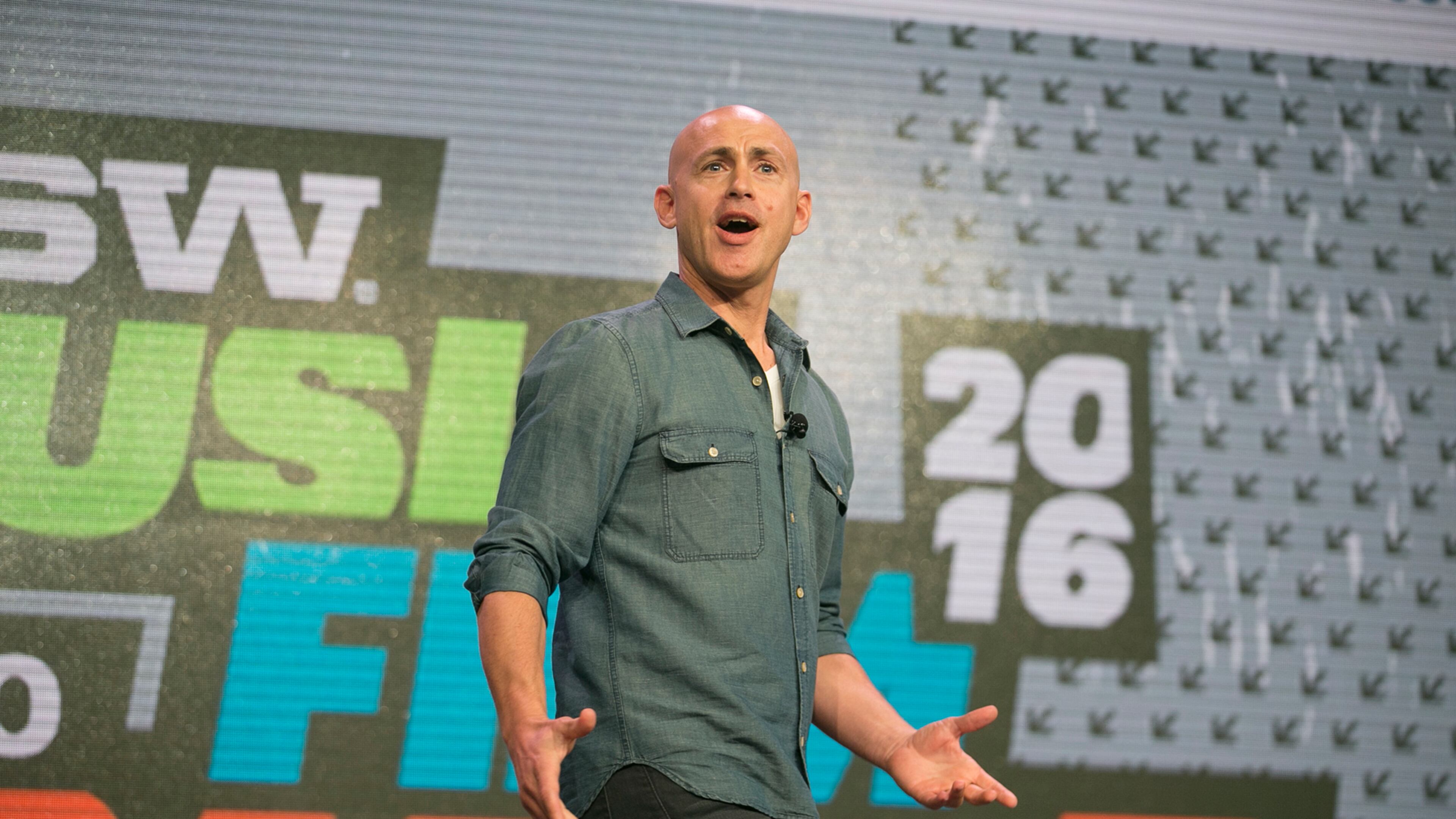SXSW: You can train your mind, create real happiness, meditation app creator Puddicombe says

Keynote: Andy Puddicombe: Why Happiness is Hard and How to Make it Easier
Andy Puddicombe wants us all to have more peace of mind. And he wants it to last -- or at least be easier to get back to (blue skies re always there, he says, even when they're blocked by clouds). He also wants us to be happy and content now, rather than postponing it. “We think happiness is in the future,” he says. “We're getting more busy in an effort to find more free time. It's not working.”
The creator of the meditation app HeadSpace was the final keynote speaker at SXSW Interactive for 2016, and he created a calmer vibe in Ballroom D at the Austin Convention Center than one usually finds at a fest he described as "life on steroids." (His guided 10-minute meditation with the 2,500 assembled was zen indeed and a taste of what the app offers.)
Puddicombe, a former Buddhist monk, does not suggest we throw away our phones and cancel Netflix (some of his Buddhist teachers can now be reached by email). Tech is not inherently good or bad. How we relate to it is where we go awry, and it makes sense: We're still working out our relatively new relationship with it, he says.
He doesn’t mean turning off your brain: Thoughts are natural. It’s more about taking a step back; he likened it to stepping to the side of the road and watching the cars (your thoughts) go by. You can acknowledge them and move on.
Some takeaways:
- Taking time for silence is essential for creating lasting happiness and contentment. "There is something about silence, which we don't experience enough," he says. A lot of us get stressed and stay there, not coming down from that place for days, weeks or years.
- Rest your mind! The health of our minds is just as important as our bodies, and a lot of us have let tech and modern lifestyles damage our physical bodies (rates of diabetes, heart disease and obesity continue to go up). "We don't have to repeat the same mistakes with our minds," he says.
- Much like earlier keynote speaker Brene Brown, Puddicombe pointed out how we get caught up in the stories our minds create, our inner turmoil, much of which might not be based in reality. "You don't want to leave the mind unchecked," he says. We can learn to take that step back and see what thoughts are productive and which ones aren't, and let the unproductive thoughts go. He knows meditation comes with a lot of baggage. The point is to get to regular mindfulness, those moments when we are fully present in our lives. Meditation is a framework for learning how to get there. Find an app, a teacher or something that works for you.


